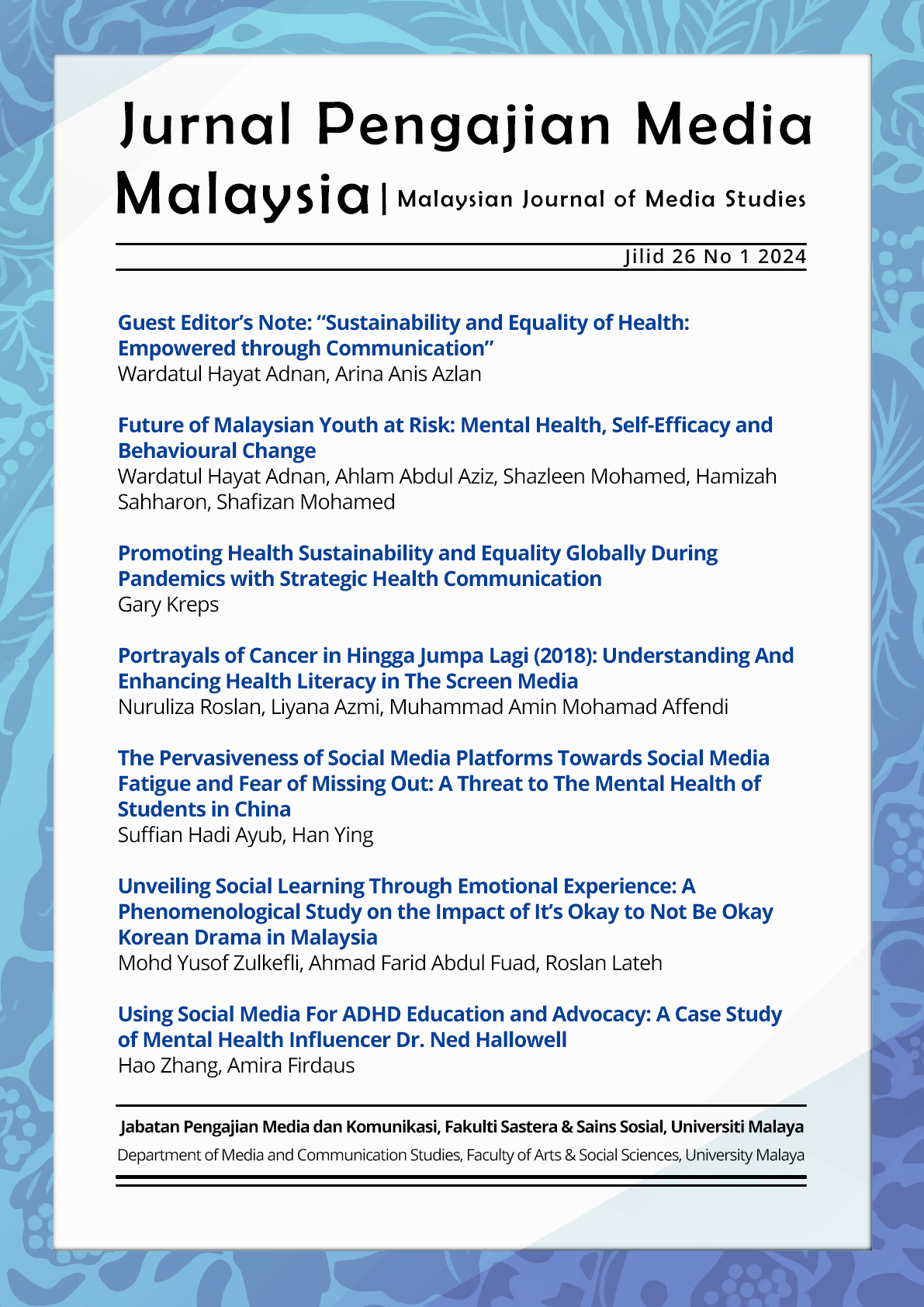Future of Malaysian Youth at Risk: Mental Health, Self-Efficacy and Behavioural Change
Main Article Content
Abstract
High rates of mental health problems are a growing concern in Malaysia higher education, negatively impacting students’ behaviour. Despite the serious nature of poor mental health, students often do not seek help because of negative behavioural changes. Identifying the youth's past behaviour, demographic culture, personality, moods & emotions and Media Intervention will further in identifying the level of mental health faced by our youth, early detection is important to reduce the risk of mental health issues amongst them. Recent mental health research reports that self-efficacy is associated with better mental health and reduced negative behavioural change. However, relationships between those constructs remain to be evaluated among youth in Malaysia. This study aims to appraise the relationships between mental health problems, self-efficacy and behavioural change in this population. An opportunity sample of 201 students from a public university completed questionnaires regarding these constructs. Correlation, regression, and path analyses were conducted. Mental health problems were positively associated with self-efficacy and behavioural change. Findings suggest self-efficacy is essential for mental health in Malaysian youth and is associated with negative.
Downloads
Article Details

This work is licensed under a Creative Commons Attribution 4.0 International License.
